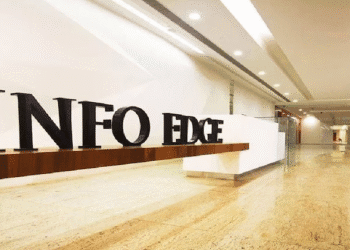Lakshmi Mittra, SVP and Head, Clover Academy
3rd April 2025
Adaptive learning is revolutionizing education by leveraging artificial intelligence (AI) to tailor instruction to individual learners. This personalized approach has led to significant improvements in learning outcomes, prompting educational institutions and businesses to adopt adaptive learning platforms to enhance engagement and retention. The global adaptive learning market is projected to reach $5.3 billion by 2025, growing at a compound annual rate of 22.7%. Additionally, the adoption of adaptive learning platforms in education increased by 30% in 2024 compared to the previous year, underscoring the rising demand for AI-driven learning solutions.
Beyond the classroom, businesses are integrating adaptive learning into workforce development strategies to equip employees with AI-driven skills and drive innovation. By continuously adjusting content, difficulty levels, and teaching methods based on real-time performance, adaptive learning ensures that learners grasp key concepts before progressing. This leads to deeper understanding, stronger skill mastery, and improved efficiency. As industries evolve in an AI-driven world, organizations must embrace adaptive learning to bridge workforce skill gaps, enhance productivity, and foster continuous growth.
How Enterprises Can Leverage Adaptive Learning for Business Success
Personalized Skill Development
Unlike traditional one-size-fits-all training programs, adaptive learning allows organizations to customize training based on each employee’s unique strengths, weaknesses, and learning pace. AI-powered platforms, such as Oracle Learning Cloud, analyse employee performance and recommend tailored learning paths. Additionally, modular, competency-based programs enable employees to develop skills directly relevant to their roles, resulting in more effective and targeted learning experiences.
Faster and More Efficient Training
Traditional training programs often demand significant time and resources, leading to productivity losses. Adaptive learning, on the other hand, facilitates just-in-time training, allowing employees to acquire essential skills quickly without disrupting workflow. AI-driven systems identify knowledge gaps in real-time and dynamically adjust training content, ensuring employees focus only on areas that need improvement. For example, a multinational financial services company implemented an adaptive learning platform for regulatory compliance training. The AI-driven system personalized training content based on employees’ previous interactions, reducing average training time by 35% while significantly improving compliance scores.
Scalable and Cost-Effective Workforce Development
Scaling employee training effectively while managing costs is a major challenge for businesses. Adaptive learning leverages AI to automate training processes, enabling companies to provide consistent, high-quality instruction across a distributed workforce without relying on costly instructor-led programs. Cloud-based adaptive learning platforms allow enterprises to scale training seamlessly across different regions and departments while ensuring accessibility for all employees. AI-powered analytics further enhance workforce development by tracking learning progress and measuring the return on investment.
The Future of Learning is Adaptive
As AI continues to reshape education and workforce development, adaptive learning is becoming an essential tool for both educators and businesses. By personalizing learning experiences, improving efficiency, and reducing costs, adaptive learning is poised to play a pivotal role in shaping the future of skill development and organizational success.





















